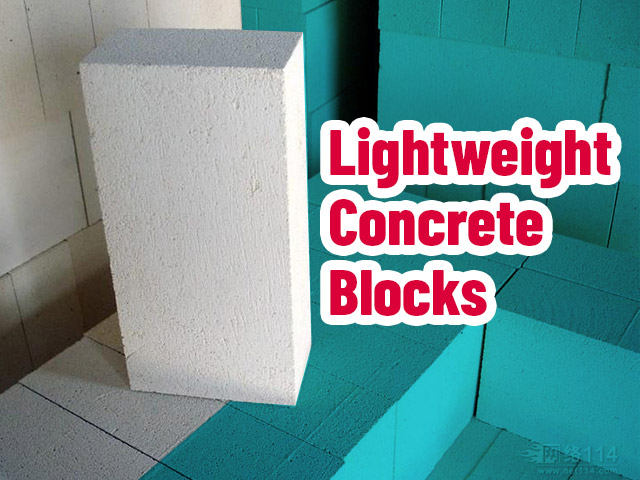
Lightweight concrete blocks allow masonist to do about 30 percent faster than the work he would do using standard weight blocks. This type of block, which provides many advantages in terms of logistics and workforce, is generally preferred in structures where texture is desired on its outer surface.
Lightweight concrete blocks have a variety of sizes and dimensions that can be used in almost any project. Although it is produced in accordance with concrete block standards, it can also be produced in special sizes upon request. As the texture on the outer surface is made in the production phase, no extra operation is required.
What is Lightweight Concrete Blocks?
Especially in the 1950s, lightweight concrete blocks were widely used in the United States. They are much lighter than standard blocks weighing an average of 15.5 kg and medium weight blocks whose average weight is 13 kg. Lightweight concrete block has a weight of less than 12 kg.
During production, clay, shale or slate are generally used as raw materials. They are heated in ovens of 1200 degrees Celsius. Gas bubbles formed during the heating process allow the blocks to grow twice as much as their current size.
As with all building systems, the quality of labor plays a major role in buildings made using concrete blocks. It is clear that when using a material that is 25 percent lighter than standard blocks, the workforce can be used more efficiently. In addition, due to the lightness of the product, larger blocks than the standard 20x20x40 centimeters used in the industry can be produced and used.
Advantages of Lightweight Concrete Block
Blocks with a flat surface can be produced as well as cellular lightweight concrete blocks. This type of block is manufactured using steam curing and cellular concrete. Thanks to the porous texture on its outer surface, it does not need extra plaster layer. In addition to its decorative features, it provides heat insulation, sound insulation and fire resistance. It is resistant to very high pressure. Although it is much lighter than standard concrete, its high strength is one of the most preferred reasons.
Briefly, the advantages are listed as follows:
- Its cost is low.
- It provides thermal insulation.
- It provides sound insulation.
- It has high strength.
- It increases labor productivity.
- Porous ones can be used for decorative purposes.
The studies and opinions of the experts working in the construction fields clearly show that nearly 50 percent of labor savings can be achieved in the structures with lightweight concrete blocks. Workers who are less tired and therefore happier focus work more, thus produces better quality results.
For a Safer Working Environment
Lightweight concrete block suppliers have been promoting much more recently. We can say that this should be evaluated in terms of job security in addition to the economic reasons we mentioned earlier. Using lighter products reduces injuries in possible accidents at work. It should be remembered that the most important investment instrument is human and workforce. Therefore, it is the responsibility of all employers to take measures to prevent adverse situations that may occur in the business environment.
